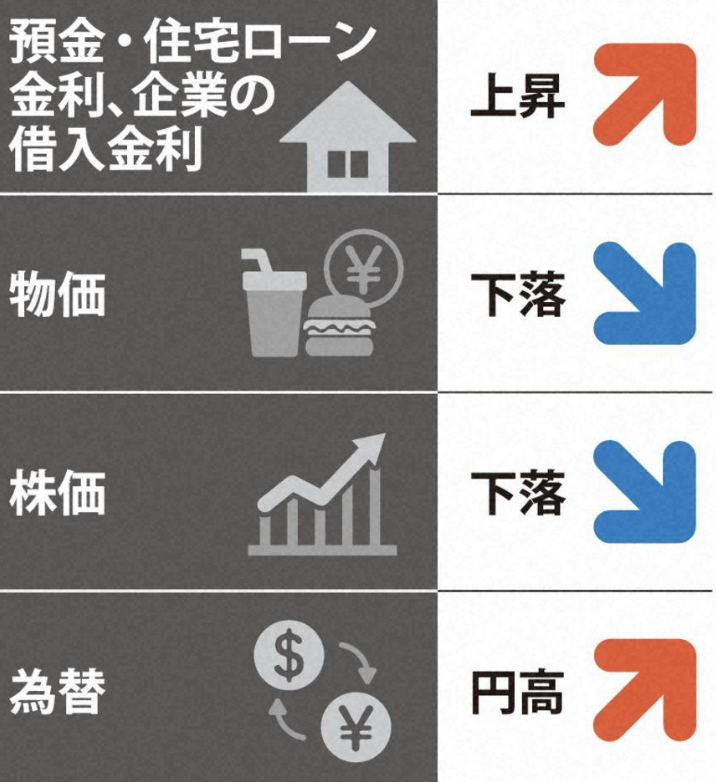
日銀利上げ 厳しさ増す財政健全化
✍️記事要約
日銀がマイナス金利解除を決めた。
日銀が抑え込んできた長期金利が上昇基調を強めれば、国の借金に当たる国債の利払い費が増え、先進国で最悪の水準にある日本の財政状況は厳しさを増す。超低金利下で借金を重ねてきた放漫な財政運営は転換点を迎える。
政府は2024年度一般会計予算案で、国債の償還や利払いに充てる国債費を過去最大の27兆90億円とした。予算総額に占める割合は約24%。金利上昇を背景に、利払い費は27年度に15.3兆円と、24年度比で約1.6倍に増える見通しだ。
新型コロナ対策で借金を積み増したため、国と地方の債務残高は1200兆円を超える。政府は国と地方の基礎的財政収支(プライマリーバランス=PB)を25年度に黒字化する目標を掲げるが、内閣府の試算によると、25年度に1.3%の実質成長率を実現しても1.1兆円の赤字になる。
岸田文雄首相は「歳出改革の継続などで25年度のPB黒字化が視野に入る」と強調する。だが、現行の目標は国債利払い費を考慮していない。24年は中長期の財政健全化目標を本格議論する節目の年に当たり、財務省からは「膨らむ利払い費を含めて財政健全化を図れなければ、市場の信認を失いかねない」との懸念も出る。
少子高齢化や防衛力強化、自然災害に備えるためにも安定的に財源を確保する必要性が高まっており、財政制度等審議会(財務相の諮問機関)分科会の増田寛也会長代理は「今後は経済環境、金融政策、金利の動向も十分注意していかなければならない」と警鐘を鳴らしている。
■英訳
The Bank of Japan has decided to lift the negative interest rates.
As the Bank of Japan has been keeping long-term interest rates suppressed, if they start to rise, the interest payment expenses on government bonds, which constitute the country's debt, will increase, exacerbating Japan's already dire fiscal situation, which is at the worst level among advanced countries. The loose fiscal management that has accumulated debt under ultra-low interest rates is reaching a turning point.
In the fiscal year 2024 general account budget proposal, the government has allocated a record-high ¥27.9 trillion for government bond expenses for redemption and interest payments. This accounts for approximately 24% of the total budget. Against the backdrop of rising interest rates, interest payment expenses are expected to increase to ¥15.3 trillion in the fiscal year 2027, about 1.6 times higher than in fiscal year 2024.
Due to increased borrowing for COVID-19 measures, the combined national and local government debt exceeds ¥1,200 trillion. Although the government aims to achieve a surplus in the primary balance (PB) of both the national and local governments by fiscal year 2025, according to estimates by the Cabinet Office, even with a real growth rate of 1.3% in fiscal year 2025, there would still be a deficit of ¥1.1 trillion.
Prime Minister Fumio Kishida emphasizes, "Achieving a surplus in the PB for fiscal year 2025 is within reach through continued expenditure reforms." However, the current target does not take into account government bond interest payments. Fiscal year 2024 marks a pivotal year for discussing medium- to long-term fiscal health goals, and there are concerns from the Ministry of Finance that if measures are not taken to address the swelling interest payment expenses, it may lead to a loss of market confidence.
The need to secure stable financial resources has increased due to factors such as aging population, strengthening defense capabilities, and preparing for natural disasters. Deputy Chairman of the Fiscal System Council (an advisory body to the Minister of Finance), Kan'ya Masuda, warns that "we must be vigilant about economic conditions, financial policies, and interest rate trends going forward."
◇ ◇ ◇
☘️ヤフコメ❗️ピックアップ☘️
収入は想定出来るんだから身の丈に合わせた支出をしなければならない。
政策を変える、新しい政策を行う。政治としては当たり前なんだけど古くから続けている政策を辞める、予算の付替えを行うといったあたり前のことが出来ない。それこそ利権化しているのだろうか。
コロナ対策などで膨れ上がった財政を平時の姿に早く戻しましょう。
財務省は毟り取ることばかりで考えず、支出のバランスを取って下さい。
増税を行った官僚が評価されると聞きましたが、無駄な支出を取り止めた官僚を評価してほしい。
✅ 日本の国債発行残高は2023年12月末でおよそ1050兆円。うち日銀の国債保有残高が590兆円ほど。
本来日銀は国債引受をしないのが通例で、理由は通貨発行し過ぎて悪いインフレになる可能性があるから。しかし長年デフレに見舞われた日本ではそうも言ってられず市中にお金を配る為に上記の国債引受が行われていた経緯がある訳です。
国債発行主が国債の半分を保有している。
となると、残りの半分に対して今後は対応していく訳で、そう言った解説をつけてのニュースにしないといけないのでは、と毎回思います。
残りの半分も色々と紐解いてみたらどうでしょうかね。
✅ マイナス金利の現在では、銀行にお金を預ける方が少ない。
逆に上げれば住宅ローンの利息分も上がり支払いに困る事や融資がし難くなる。
私は金利の問題より経済を上げる為には、如何に国産の商品を国内で売り上げる事だと思います。
日本は輸入に頼り過ぎており、海外の商品を売ってる事で、結局はその代金は海外に流れるので、現状とは変わりはない。
その現象が円安傾向にあたると思います。
その為には、大企業の内部留保を開放して、雇用者の賃金やその他の収入を上げる事だと思います。
とにかく現状では、国民の収入が物価に対して少ない事で、財布の紐が硬いかと思います。
お金が世に流れて、始めて経済が動く。
